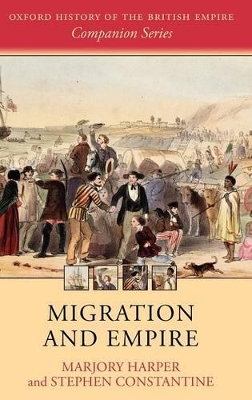Migration and Empire provides a unique comparison of the motives, means, and experiences of three main flows of empire migrants. During the nineteenth century, the proportion of UK migrants heading to empire destinations, especially to Canada, Australia, and New Zealand, increased substantially and remained high. These migrants included so-called 'surplus women' and 'children in need', shipped overseas to ease perceived social problems at home. Empire
migrants also included entrepreneurs and indentured labourers from south Asia, Africa, and the Pacific (together with others from the Far East, outside the empire), who relocated in huge numbers with equally transformative effects in, for example, central and southern Africa, the Caribbean, Ceylon, Mauritius, and
Fiji. The UK at the core of empire was also the recipient of empire migrants, especially from the 'New Commonwealth' after 1945.
These several migration flows are analysed with a strong appreciation of the commonality and the complex variety of migrant histories. The volume includes discussion of the work of philanthropists (especially with respect to single women and 'children in care') as well as governments and entrepreneurs in organising much empire migration, and the business of recruiting, assisting, and transporting selected empire migrants. Attention is given to immigration controls that restricted the settlement
of some non-white migrants, and to the mixture of motives explaining return-migration. The book concludes by indicating why the special relationship between empire and migration came to an end. Legacies remain, but by the 1970s political change and shifts in the global labour market had eroded the
earlier patterns.
- ISBN10 0199250936
- ISBN13 9780199250936
- Publish Date 23 September 2010
- Publish Status Active
- Publish Country GB
- Imprint Oxford University Press
- Format Hardcover
- Pages 400
- Language English
